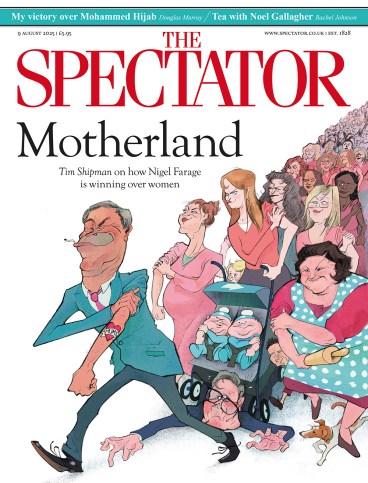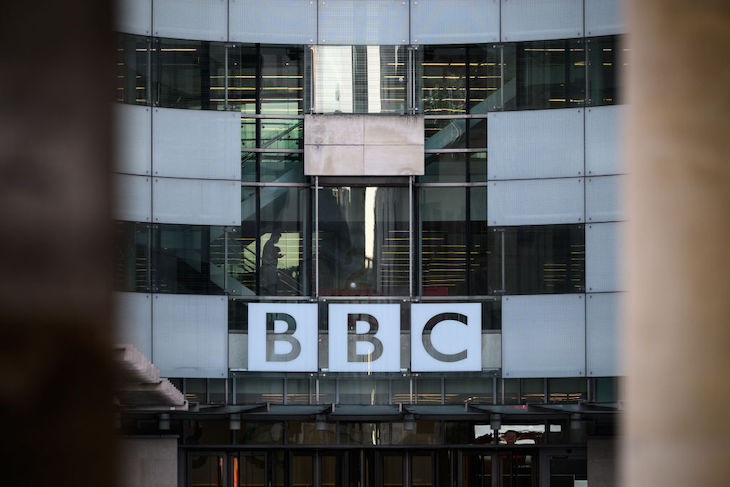
Rome
Last weekend, Rome hosted nearly a million young pilgrims to celebrate the Papal Jubilee of Youth. Part Woodstock festival, part giant outdoor mass and all-night vigil, crowds of students from all over Italy and beyond gathered to listen to Christian rock music, sing hymns and receive the blessing of the new Pope. Leo XIV, arriving in a white papal helicopter, was feted like a rock star. The event was orderly, joyous and a sign of a society at peace with itself and proud of its heritage.
The way Italians carry on, you’d think the country was booming. The Lombardy and Veneto regions are gearing up to host the 2026 Winter Olympics. Central Rome has been transformed for the four-times-a-century papal jubilee year, with five city squares refurbished and more than 500 churches and palaces restored. Naples has unveiled an award-winning new metro line, and a trans-Apennine high-speed rail link between Naples and Bari is nearing completion. Rome and Naples’ notorious rubbish collection problems have been miraculously cleared up. And perhaps most remarkable of all, Italy’s firecracker of a Prime Minister, Giorgia Meloni, enjoys approval ratings of more than 40 per cent two years into her term.
On paper, Italy has been suffering from the same economic malaise as the rest of Europe, with growth at a sluggardly 0.7 per cent, a whopping budget deficit of 7 per cent, and one of the worst demographic profiles on the continent. But one thing macroeconomic statistics don’t show is how affordable everyday life is in Italy. Even in the smartest café in central Rome an espresso costs €1.20 (as long as you drink it al banco – standing at the bar). Last week, at a gloriously time-frozen 1950s café in downtown Sulmona, Abruzzo, I paid just €0.60 for a coffee personally served by the elderly proprietor. A pizza margherita is no more than €10 anywhere. Outside the swankiest areas of central Rome and Milan, rents are laughably affordable compared with the UK. Adjusted for spending power, Italians are richer than Britons.
On a day-to-day level the basic functions of the Italian state – from law and order to healthcare to public transport – work dramatically better than their counterparts in the UK. Last week my son fractured his ankle during some late-night shenanigans in a Rome park and called an ambulance. It arrived in 25 minutes and he was seen by two doctors, X-rayed and discharged within two hours from San Carlo di Nancy, the Vatican hospital – all for free. During a recent hour-long stroll through central Rome, I counted a staggering 55 police officers patrolling three and a half miles of streets. Late at night on the bustling Viale Trastevere people stand waiting for the crossing lights, blithely holding their phones up to their faces with no fear that a hooded thug might ride by on a bike and snatch them – a horror I recently witnessed outside London’s Victoria Station.
Adjusted for spending power, Italians are now richer than Britons
Another major difference is that the media catastrophism over immigration, collapsing social cohesion, youth violence, the growth of militant Islam and the plague of shoplifting and street robbery that has gripped Britain and France is largely absent in Italy. Neither has mainstream Italian political discourse ever been much troubled by debates over woke shibboleths such as the legacy of slavery, trans rights or decolonisation.
Italians do love to complain – Italy ranks 14th in European happiness rankings, slightly below the continental average. But what makes the country stand out is that its governing class is much more closely aligned with the broadly socially conservative, anti-woke opinions held by a majority of its voters. Sir Keir Starmer, infamously, was unable to say what a woman is. By contrast, the passionate speech that projected Meloni to prominence in 2019 was an unashamed statement of conservative values. ‘We will defend our identity,’ she yelled. ‘I am Giorgia, I am a woman, I am a mother, I am Italian, and I am Christian! You will never take that from me!’
Meloni campaigned on immigration controls, family values and national sovereignty, and vowed to bring in tax reforms to support small businesses and the family. She was against abortion, the promotion of gay rights in schools, gay adoption and surrogacy and the dominance of the European Union. ‘We defend God, fatherland and family,’ was the slogan of her Brothers of Italy party, which has its roots in post-war fascism. But though the motto was used by Mussolini, it was in fact coined by the Italian founding father Giuseppe Mazzini in the 1860s – a classic example of the doppiezza, literally doubleness, of Meloni’s political identity that some say dog-whistles fascism but in practice tends towards pragmatic conservatism.

When Meloni was elected in 2022, many saw her as an Italian Viktor Orban, or even a European Donald Trump. British media described her as ‘far-right’, and even Joe Biden called her rise something for democracies to be worried about. But instead of following recent Italian protest parties – such as Beppe Grillo’s nihilist Five-Star Movement – Meloni has shown herself to be a serious political operator. ‘Meloni increasingly looks like the face of Europe’s future,’ was the verdict of CNN’s Fareed Zakaria.
Since coming to power Meloni has tacked to the left on economic policy while pursuing a pro-Ukraine stance in defiance of the more pro-Putin elements of her coalition partners, Salvini’s Lega. Her withering Euroscepticism softened into co-operation with Brussels – which has in turn brought a golden rain of EU cash that has funded many of Italy’s infrastructure splurges, from Rome’s jubilee renovation to new metros and rail lines.
She has worked hard to find ways to shut down illegal immigration, doing deals with Tunisia, Egypt and Libya to cut off flows of migrants across the Mediterranean. She also set up processing centres in Albania, deploying 500 police officers to staff the centres where newly arrived male migrants would be immediately deported – only to be stymied by Italian and European courts who have ruled the scheme a breach of human rights.
Increasingly Meloni’s views on immigration – once decried as extreme – are becoming the mainstream. A few years ago at a rally held by the Spanish right-wing party Vox, she denounced the threat from ‘the secularism of the left and Islamic radicalisation’ and called for a defence of ‘our civilisation’ against ‘those who want to destroy it’. More controversially, she has also dared to say that Italy does not want immigrants from Africa, or those who are Muslim. ‘Every nation has the right to choose an immigration that is more compatible with its own culture,’ Meloni said in 2018. ‘In Venezuela, there are millions of people starving – they are Christian, often of Italian origin. So if we need immigrants, let’s take them from Venezuela.’
Last year Starmer came to Meloni for tips on how to control illegal boat crossings – though apparently failed to pick up on the fact that rather than housing migrants in luxury hotels, the Italian authorities confine them in repatriation holding centres which have been compared to prison camps.
For sure, Italy has some serious social and political problems. Reported crimes in Milan approach 75 per cent of London’s rates (though with far less violence and knife crime). Unemployment for the under-24s stands at 20.1 per cent, and wages are low compared with northern Europe – which has led at least 450,000 Italians to move to the UK. But there is also a steady exodus of wealthy Britons going in the other direction, many taking advantage of Meloni’s tax breaks that allow non-domiciled foreigners to pay a flat rate on worldwide earnings. Italy has also introduced new visa categories and tax rates for high-skilled international digital nomads and entrepreneurs. Unlike the British government, the Meloni administration believes that attracting wealthy residents to your country makes good economic sense.
It’s easy to idealise Italy. But everything that I have observed in five decades of visiting this country, and four years as a resident, confirms that it is an extraordinarily healthy, self-confident and content society. In recent years Italy has cleaned up its formerly endemic corruption and made its state-run health and security services work as well as any in Europe. Now Meloni may be about to crack the deepest Italian political problem of all, which is an inherently unstable constitutional system that has given Italy 69 governments since 1945. In short, Meloni is showing Europe how a country should be run: for the people, and by their values.









Comments